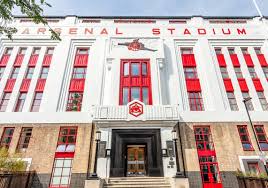
One of the more ‘colourful’ habits in the otherwise sensible life of Sir Keir Starmer is that he is an Arsenal supporter, to the extent that he has been quizzed on this in media interviews, and cruelly asked if, like Arsenal, he will ‘bottle’ the premiership. For those non-football fans amongst you, even Arsenal fans like to chant ‘boring, boring..Arsenal’).
Consistent with his devotion to Arsenal, ‘boring, boring’ seems to be the guiding light of Starmer’s policy playbook, launched formally on Thursday in the form of the 23,000-word, 134 page Labour manifesto.
The subset of individuals who peruse political party manifestos is small, and I have heroically dug into it to save readers the trouble. It is worth paying attention to because of the likelihood that Labour will form the next government in the UK.
My first take is that the manifesto is very conservative, with a small ‘c’, in the sense that it emphasises Starmer’s reluctance to change many elements of existing fiscal policy (corporate tax stays at 25% for example) and effectively ventures very little in terms of dramatic policy moves. The headlines stress no ‘austerity’ but it is also hard to see this package producing a durable expansion and return to productivity. The manifesto is accompanied by a laborious compilation of the costs of the Labour programme, the object of which must be to convince markets that Labour are on top of their fiscal ‘game’.
My sense is that the manifesto is characteristic of a party that wants to avoid any kind of policy hiccup before the election, and confirms my sense that the big policy moves, if there are any, will come in the autumn or early 2025, once the government has been bedded in.
On balance it is a manifesto for workers rather than capitalists. The message for workers is that income tax, national insurance contributions and VAT won’t change, but we will see small groups (private equity execs for instance) treated more severely. Also, with the abolition of generous non-dom tax status, the international wealthy will feel the fiscal pain, added to which private education fees will be charged VAT. These measures are expected to raise GBP 6bn, which is small in the context of the economy and deficit. More efficiencies in spending are expected to bring ‘new’ fiscal boost to GBP 8.5bn
From the point of view of companies and investors, there is not yet much here to worry about, but neither much to be excited for.
We also have a little more colour on the landmark innovation of the manifesto, GB Energy – the brainchild of Ed Miliband (one of the most experienced Labour ministers and the most ‘policy ready’ one). GB Energy will be based in Scotland and will invest in renewables (co-invest with the private sector in new green technologies and help scale up startups in segments like solar and wind and help to invest in the installation of green energy infrastructure). It will take on existing state-owned stakes in energy projects like GB Nuclear, and the aim is to capitalise it (likely in 2025 to the tune of GBP 8bn). One element for the energy sector is the flagging in the manifesto of much tougher regulation of the energy sector (in terms of consumer prices).
On healthcare, my first impression is that the improvements flagged for the NHS are not transformative and as a trend, point towards more outsourcing of services, away from hospitals. Finally, there are some interesting comments in the ‘serving the country’ section of the manifesto (reform of the House of Lords and a focus on ethics in public life). My expectation is that Labour will lead with these reforms once in power.
In more detail, I think Labour will win the July 4th election, their immediate accession to power will be marked by a number of high-profile foreign affairs events (i.e. NATO summit) where Starmer will be able to look ‘presidential’. August will be quiet, and I think the early policy moves will come, as above, in the area of institutional reform.
As we move into the autumn, the focus will turn to economics, and I suspect Labour will lead this with a series of announcements on inward investment. The launch of GB Energy and the national wealth fund will follow.
This manifesto is deliberately ‘boring’ in the sense that it will ease Labour’s passage through the election campaign with little policy friction. Voters’ disdain for the Tories will be enough for Labour to win handsomely, and they may well be helped by the damage that the Reform party will do to the Tories.
With the economy in mind, the absence of chaos that should accompany a Labour government (as opposed to the Tories) should help, and a great deal will depend on international factors. However, the manifesto, in my view, is not a convincing plan in terms of kickstarting productivity in the UK economy. ‘Boring’ will not be enough to satisfy the economic challenge that has been left to Starmer.
Have a great week ahead,
Mike



